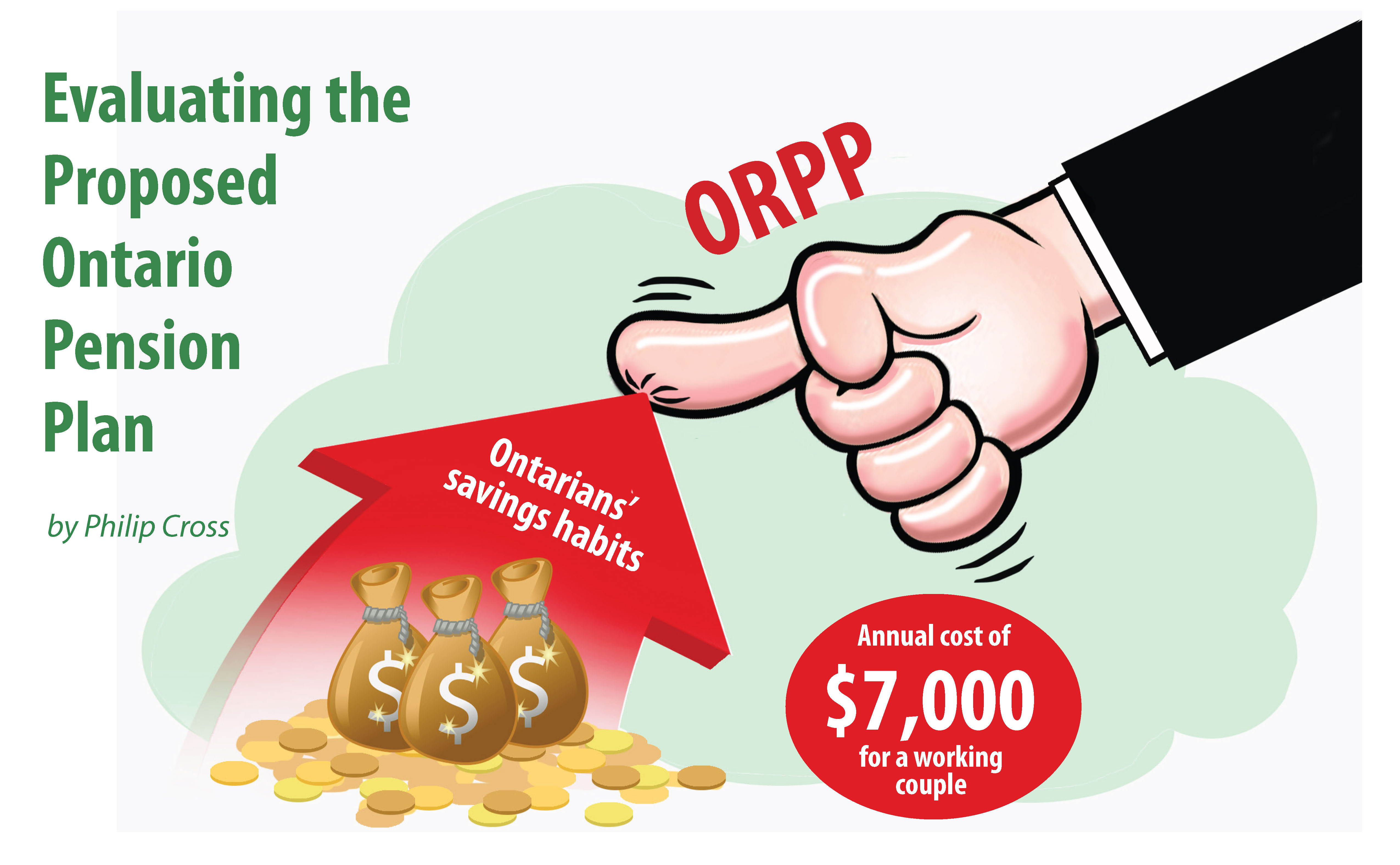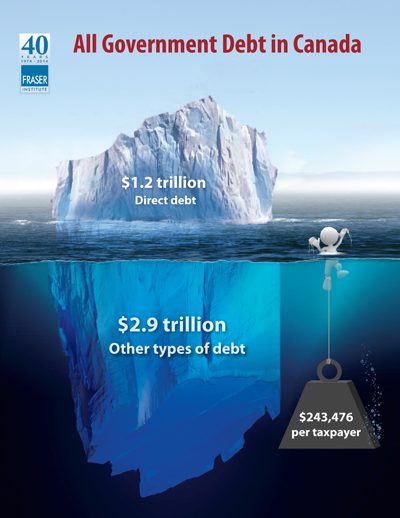A series of blog posts will highlight key policy areas where Finance Minister Bill Morneau’s think-tank experience can be especially useful. In this post, we examine the policy choices surrounding retirement savings.
canada pension plan
The Ontario Liberals recently introduced legislation to create a mandatory government pension plan modelled after the Canada Pension Plan.
The Ontario government's proposal to supplement the Canada Pension Plan with its own compulsory pension plan is based on a series of faulty assumptions.
Imagine receiving a credit card bill that totaled $243,476. This would no doubt be a shock for most Canadians. But if you add up all the liabilities of every Canadian government "federal, provincial, and local" that is in fact how much each taxpayer would owe of the $4.1 trillion total in direct debt and unfunded liabilities.
This admittedly is a very large number and much bigger than what is usually talked about by both politicians and pundits alike. So let's deconstruct it to gain a better understanding.
The upcoming meeting of federal and provincial finance ministers will touch on whats become a politically charged debate about expanding the Canada Pension Plan (CPP). Proponents have tried to convince Canadians they are not saving sufficiently for retirement with some even suggesting we are on the brink of a retirement crisis. These views simply do not reconcile with the available empirical evidence. Thankfully, theres no retirement crisis in Canada.


